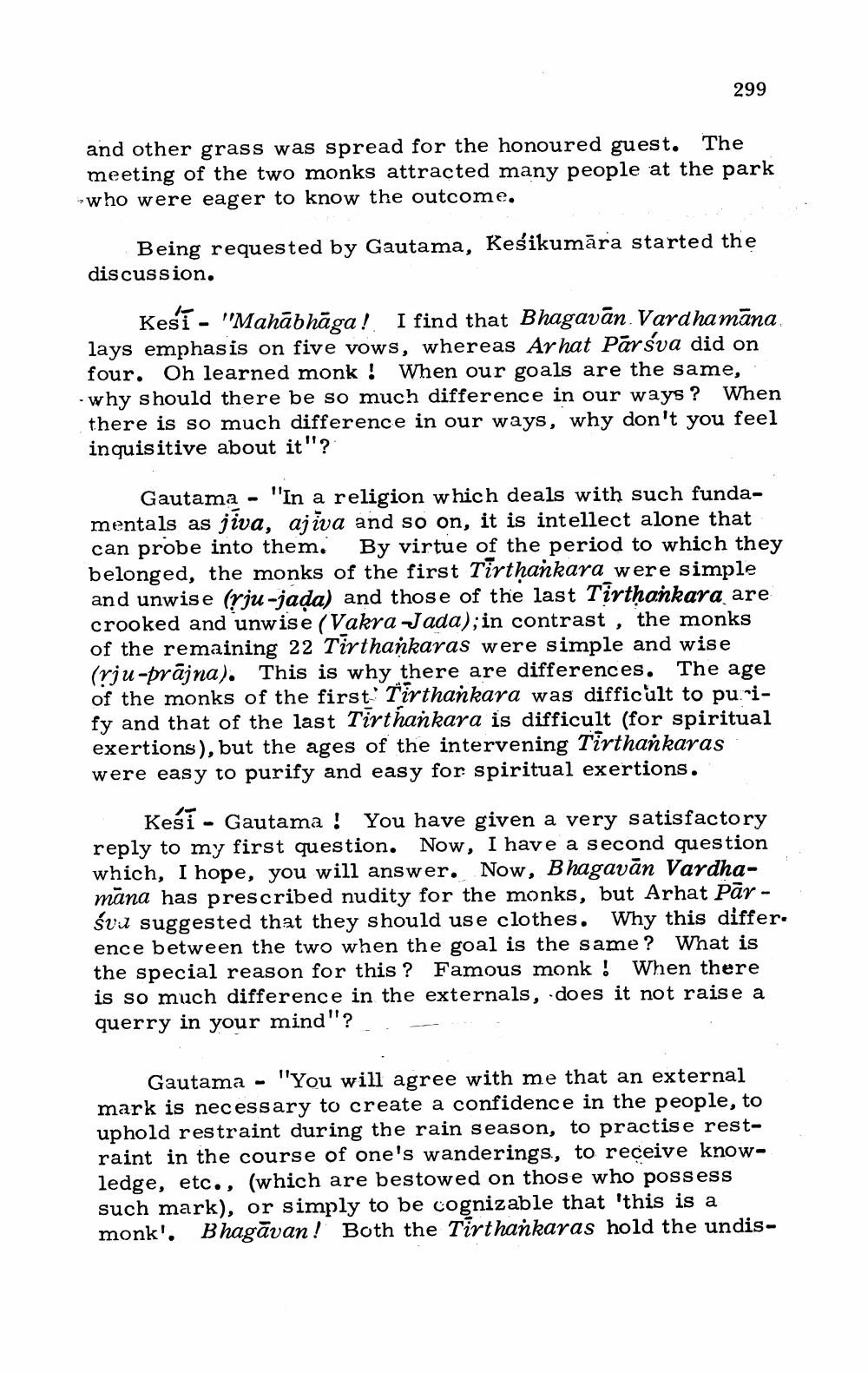________________
299
and other grass was spread for the honoured guest. The meeting of the two monks attracted many people at the park who were eager to know the outcome.
Being requested by Gautama, Kesikumāra started the discussion.
Kesi - "Mahābhāga! I find that Bhagavān. Vardhamāna, lays emphasis on five vows, whereas Arhat Pārsva did on four. Oh learned monk! When our goals are the same, - why should there be so much difference in our ways ? When there is so much difference in our ways, why don't you feel inquisitive about it"?
Gautama - "In a religion which deals with such fundamentals as jiva, ajiva and so on, it is intellect alone that
probe into them. By virtue of the period to which they belonged, the monks of the first Tirthankara were simple and unwise (rju-jada) and those of the last Tirtņonkara are crooked and unwise (Vakra Jada); in contrast, the monks of the remaining 22 Tirthaņkaras were simple and wise (rju-prajna). This is why there are differences. The age of the monks of the first Tirthankara was difficult to purify and that of the last Tirthankara is difficult (for spiritual exertions), but the ages of the intervening Tirthankaras were easy to purify and easy for spiritual exertions.
- Gautama ! You have given a very satisfactory reply to my first question. Now, I have a second question which, I hope, you will answer. Now, Bhagavān Vardhamana has prescribed nudity for the monks, but Arhat Pār - suu suggested that they should use clothes. Why this differ. ence between the two when the goal is the same? What is the special reason for this ? Famous monk! When there is so much difference in the externals, does it not raise a querry in your mind"? -
Gautama - "You will agree with me that an external mark is necessary to create a confidence in the people, to uphold restraint during the rain season, to practise restraint in the course of one's wanderings, to receive knowledge, etc., (which are bestowed on those who possess such mark), or simply to be cognizable that 'this is a monk'. Bhagāvan! Both the Tirthankaras hold the undis




